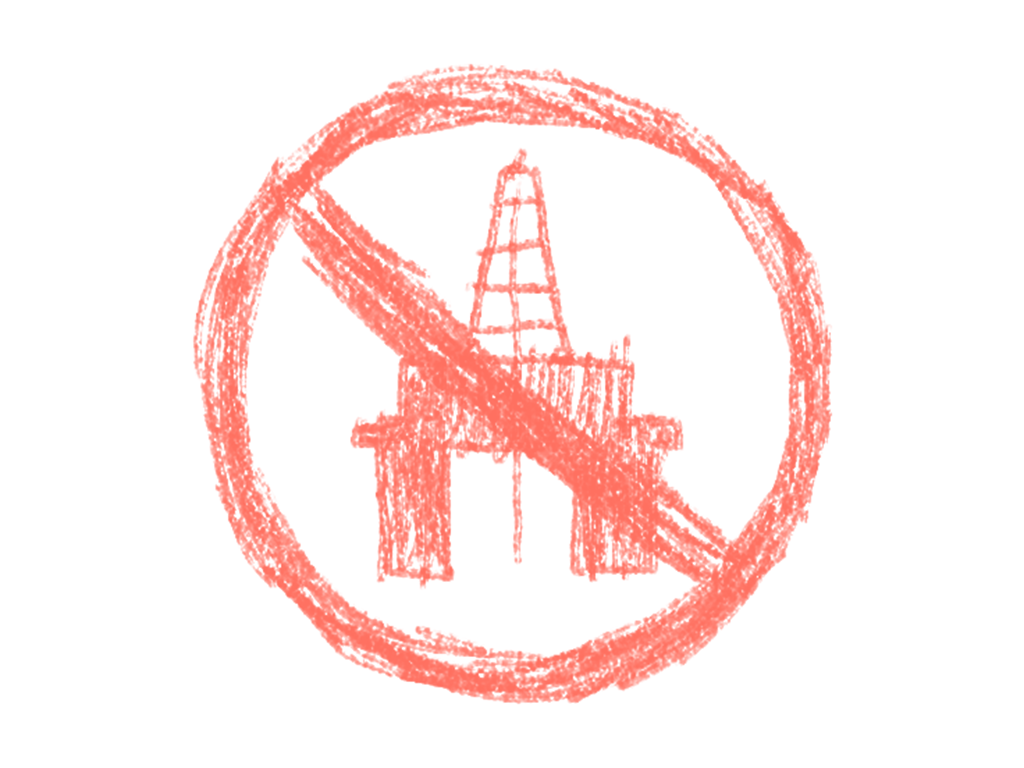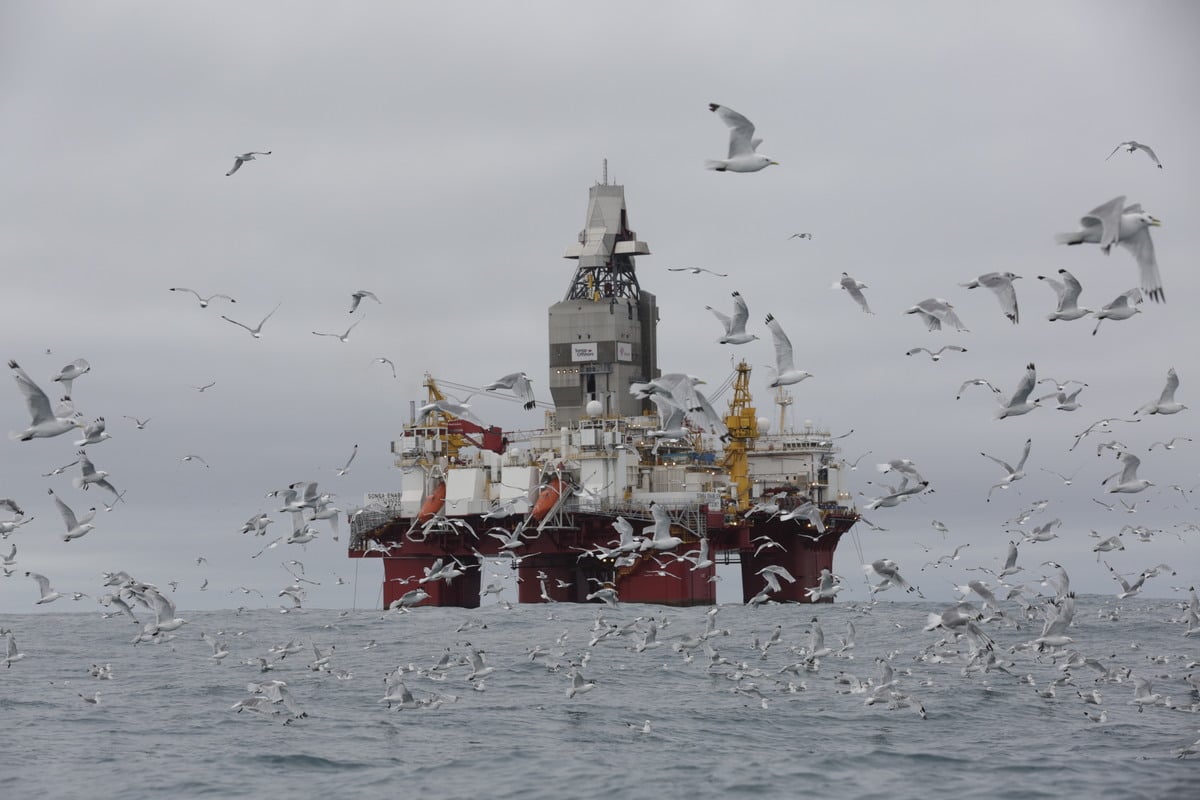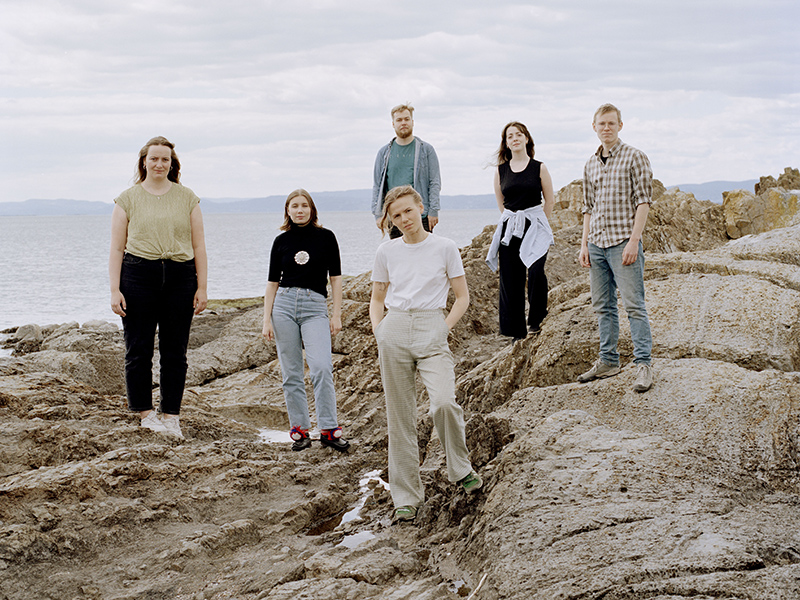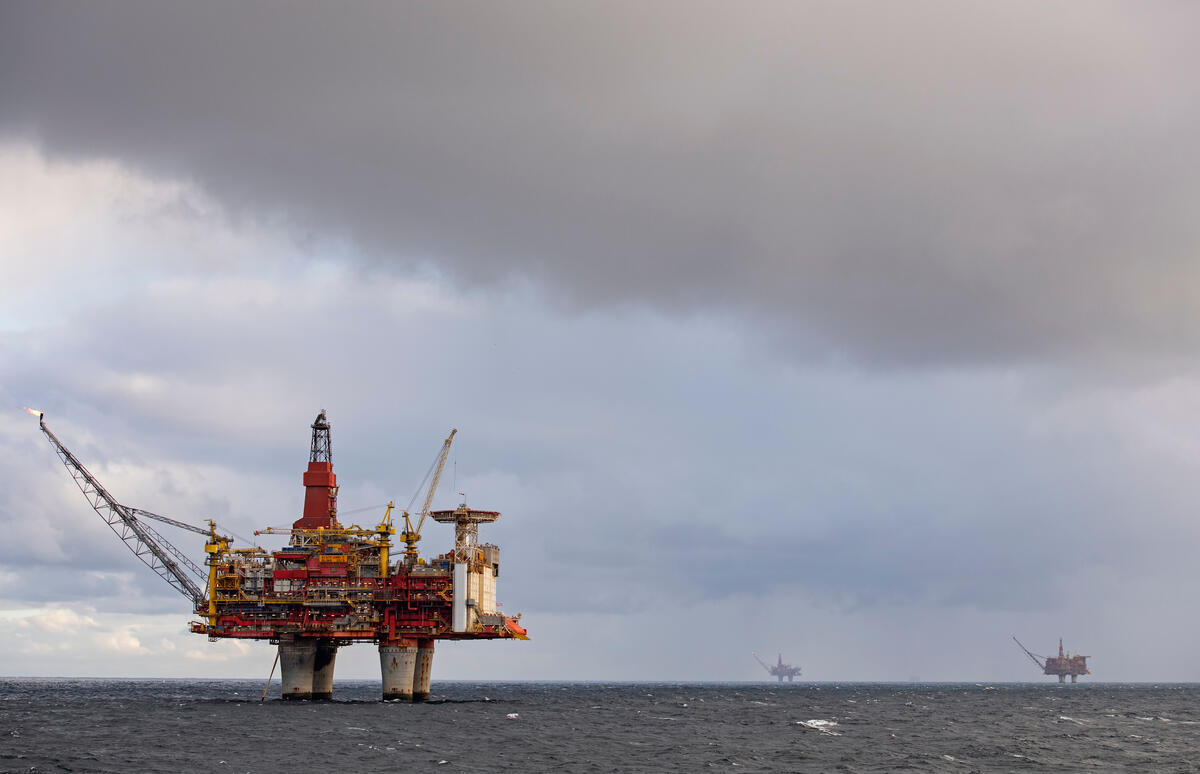
This article was last updated 18 February 2025.
In January 2024, Greenpeace Nordic and Nature and Youth Norway secured a landmark victory against the Norwegian state. The Oslo District Court declared three oil projects invalid, and issued a temporary injunctions on the fields, preventing them from further development. In its historic judgement the court was clear – the climate effects of exported emissions must be assessed prior to project approval.
The new climate lawsuit in Norway is part of a larger movement to hold states and corporations accountable for the climate and nature crisis. In the absence of climate action from both states and corporations, more and more environmental organisations, communities impacted by climate change and individuals around the world are taking legal action, including fighting the fossil fuel industry. And climate litigation has been proven to drive change.
In short
In January 2024 the Oslo District Court delivered a historic judgement declaring the approvals of the North Sea oil fields Breidablikk, Tyrving and Yggdrasil invalid. The court agreed with applicants that the lack of assessments on climate effects as a result of the export emissions from the fields is in violation of Norwegian and EEA law. At the same time the court also issued temporary injunctions on the three fields, banning the government from granting new permits on the fields and thus halting their further development.
The state appealed the judgement and ruling to Borgarting Court of Appeal, which decided that the case will be divided into two parts and heard separately – the injunction claim and the main invalidity claim.
Following the government’s request and in light of the June 2024 Finch judgement in the UK Supreme Court, the Appeals Court referred the case to the EFTA Court in Luxembourg for an advisory opinion on how the EU Projects Directive should be interpreted. The main claim was paused pending guidance from the supranational court.
In October 2024, the Court of Appeals lifted the injunctions and the organisations appealed on the spot. The Supreme Court will hear the injunction case on March 18-19. In the meantime, the organizations are also awaiting the EFTA Court’s Advisory Opinion after the hearing took place in Luxembourg on December 19, 2024. Once that is in place, the validity claim will be heard by the Court of Appeals sometime in 2025.
Background: The Supreme Court judgement in People vs Arctic oil
In December 2020, the Supreme Court handed down its judgement in the first climate lawsuit involving Greenpeace and Nature and Youth on the one hand, and the state represented by the Ministry of Petroleum and Energy (MPE) on the other. A case which went through three rounds of court proceedings between 2017 and 2020. The judgement was not unanimous, with four judges finding that the oil licences in the Arctic should be invalidated on climate grounds, but the majority voted in favour of the Norwegian state. However, the court issued some important smaller victories for the organisations. One of them was that they unanimously held that the state is obliged to assess the global climate effects of new oil fields as part of the impact assessment when the fields are under consideration by the Ministry of Petroleum and Energy. This confirmation by the court has given the organisations the opportunity to challenge the state in court once again, as such an assessment of consumption emissions has not been adequately made for any of the approved new oil projects since the Supreme Court judgement.
Following the first climate lawsuit, Greenpeace and Nature and Youth submitted an application to the European Court of Human Rights in Strasbourg. The Court is treating the complaint as a particularly significant so-called «impact case» and a judgement is expected soon. More background here.
The big win in Oslo District Court
On January 18 2024, Oslo District Court delivered its judgement where it declared the three oil fields invalid due to the lack of impact assessments performed with regards to export emissions prior to their approval. The Court also handed down three injunctions halting further development of the oil fields. This marked an unprecedented win for the environmental organisations.
The judgment found the approvals of all three oil and gas fields invalid and issued an injunction forbidding the state from granting any new permits necessary to construct and produce from the fields.
Specifically, the court ruled that section 20 of the Petroleum Regulations, which provides the requirement on impact assessments, must be interpreted in light of Article 112 of the Norwegian Constitution. It referred to the 2020 Supreme Court decision that found that Article 112 should cover both emissions from the production and consumption of petroleum, even if it is combusted outside of Norway. The Court found that the State must assess the real impact of both forms of greenhouse gas emissions resulting from the development and operation of petroleum deposits before approving oil and gas fields.
The Court also emphasized procedural problems of the approval process, highlighting the lack of adequate public participation, and found that the approvals were inadequate under EU law, and that “combustion emissions [from] petroleum extraction are such a significant and particularly characteristic consequence of such projects that they must clearly be considered indirect climate impacts within the meaning of the (EU) Project Directive”.
The Court confirmed that the government violated legal precedent from the Norwegian Supreme Court, by not subjecting combustion emissions to an environmental impact assessment.
The government appealed both the judgement and ruling on the injunctions soon after, and unfortunately decided not to respect the court’s injunctions regardless of the legal enforceability of the ruling.
Supreme Court to make decision on halting three oil fields
During the spring and summer of 2024, the case was split into two parts – one being on the invalidity claim, while the other on the temporary injunctions. The government also requested for the main claim to be referred to the EFTA Court for an advisory opinion with regards to the interpretation of the EU Project Directive.
In the meantime the state’s injunction appeal was heard in a six day trial in September 2024 before the Appeals Court. In an October 2024 ruling, the court agreed with the organisations that the decisions are invalid, and that continued operation will cause significant damage and loss of human life. The court did however also argue that because all petroleum activity is harmful to a certain extent, then the threshold for an injunction is too low and thus one can argue that it can be awarded for all such activity.
This ruling was appealed by the organisations on the spot and their appeal will be heard by a five judge-panel at the Norwegian Supreme Court on March 18-19. The hearing will be livestreamed.
The hearing in the EFTA Court on the main part of the case took place on December 19, 2024 in Luxembourg and the advisory opinion is expected before the summer. Once the opinion is handed down, the case will resume in the Appeals Court in Oslo sometime in 2025.
Inadequate and undemocratic processes
The organisations claim that the assessments of the global climate impact of the three fields are either non-existent or highly inadequate, denying the rights of civil society, decision-makers and researchers to provide input well in advance of the decision, as required by law. Instead of assessing the climate impact of the fields in a public impact assessment, the Ministry of Petroleum and Energy conducted a “calculation” behind closed doors, concluding that emissions from the Tyrving and Yggdrasil fields, which are expected to total more than seven times Norway’s current annual emissions, either have no impact on the climate and environment, or it is “unclear” whether they will have and effect. This is contrary to basic climate science and the precautionary principle.
In the spring of 2024, Aker BP – the company behind the Yggdrasil and Tyrving fields announced that they will be doing “additional assessments” of the combustion emissions from the fields. In addition to being conducted years too late, the sham assessments were riddled with inconsistencies and flawed assumptions and omitted to mention, let alone assess many of the effects which are entirely quantifiable using IPCC science. Such an additional “assessment” was also conducted for Breidablikk in September 2024, over a year after the field was put in production.
The organisations argue that such assessments after two of the three fields are already in production are entirely useless and make a mockery of democratic processes, and further that there is no real worth of an assessment of an impact if some impacts have already materialised and are irreversible. This matter was not made better by the fact that two of the three fields were put in production the day before planned court appearances, sometimes accelerated half a year ahead of prognosis. The organisations do not believe that this is a mere coincidence.
The organisations are of the opinion that citizens and decision makers have the right to access and knowledge of relevant information, but one cannot make a decision based on what they do not know.
The best interests of the child
Article 104 of the Norwegian Constitution and Article 3 of the UN Convention on the Rights of the Child require that the best interests of children be taken into account in matters that concern them. The environmental organisations point out that this must also apply to decisions on climate and oil management, and that the authorities are obliged to weigh the consequences of climate change against, for example, short-term corporate profits from oil extraction. As the consequences for children and young people have not been assessed for the three oil fields, and some of the fields will produce oil well into the 2050s, the environmental organisations assert that the approvals are also invalid on this ground.
Save the Children Norway have submitted amicus curiae both to the Appeals Court in 2024 and the Supreme Court ahead of the 2025 hearing supporting the organisations’ legal arguments.
Expectations and outcomes
As legal certainty on the question of the duty to assess export emissions is more established than ever, Greenpeace and Nature and Youth are optimistic about the outcome of the lawsuit and believe that another victory both at the EFTA Court and The Supreme Court are within reach.
Contacts
Jenny Marie Baksaas, Communications Officer at Greenpeace Norway
[email protected] Tel: +47 932 25 753
Sigrid Hoddevik Losnegård, head of Nature and Youth Norway
[email protected] Tel: +47 405 29 471
Klimentina Radkova, legal campaigner at Greenpeace Norway
[email protected] Tel: +47 96 84 62 88
Frode Pleym, leader of Greenpeace Norway
[email protected] Tel: +47 97 30 73 78



